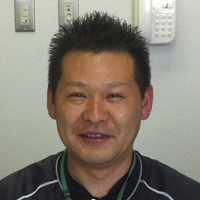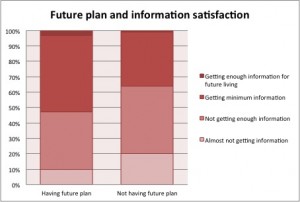The catastrophic disaster caused by the big earthquake and Fukushima nuclear plant destruction has been raising awareness of energy resource alternatives. A feed-in tariff for renewable energy started in July this year has been encouraging many of local governments and enterprises to participate in power generation businesses in Japan. Natural energy, in particular, is getting attention in Tohoku where the reconstruction activities are underway.
On November 17th, a symposium was held in Sendai city as a part of activities of “Tsunagari-Nukumori Project” which engaged in reconstruction support activities using the natural energy. The project was launched by initiatives of NPOs and other groups in the disaster area. Utilizing the grass-root network, it has been supporting the regional communities to install solar and biomass systems and equipment at circa 250 locations.
At a panel discussion session titled “Toward Energy Shift from the Reconstruction”, six panelists made presentations on their activities including photovoltaic power plant constructions done by an NPO of Iwaki city of Fukushima, an agricultural organization’s challenges of strawberry cultivation using solar water heaters in Yamamoto town of Miyagi prefecture, and so on.
The concept repeatedly emphasized at the seminar was that the natural energy should be a tool to put the communities back on their feet for growth. By using the natural energy as sources of electrical power and heat, the people in the disaster area are expected to accelerate the recovery operations by themselves and to create new employment and strengthen the regional expertise. Shifting to the distributed natural energy sources, in other words, creates a circulation of the wealth within the regional economy and society.
An issue lying ahead is how to design the energy-shift mechanism which many people and business parties can participate in. In the design process, consideration on ways of new business creation is required together with how to develop human resources that will have knowledge and technologies of renewable energies.
Japan Forest Biomass Network, one of the NPOs that participated in the panel discussions, carries out a woodcutter training course to enable the people to earn additional income from forestry while they work on cyclical utilizations of forestry resources.
. In addition, the NPO started several new businesses such as a regional monetary system as a part of the energy-shift mechanism to get the region to stand on their own feet.
After the earthquake, the importance of regional initiative for renewable energy is strongly emphasized all over Japan. Initiatives in Tohoku, beginning with the energy-shift project, will be getting a lot of attention from now on.
Tweet





